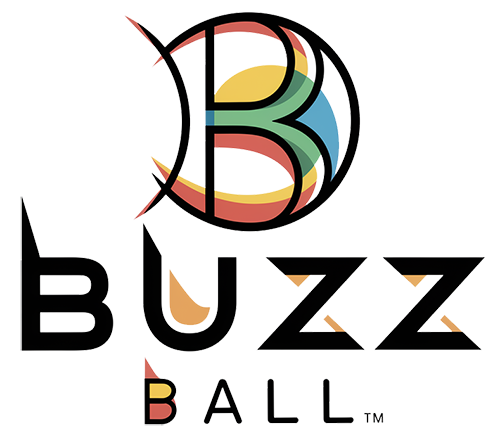
Artificial Intelligence (AI) is no longer limited to science fiction as a notion. It has transformed the way we engage with technology and has grown to be an essential element of daily life. This guide offers novices a strong foundation in AI and is meant for people who are new to the field. To assist demystify AI and encourage more learning, key ideas, applications, and resources will be examined in this post.

AI for Beginners understanding
Beginners may find AI to be an intimidating subject, but by breaking it down into smaller ideas, it becomes more approachable. Fundamentally, artificial intelligence (AI) is the replication of human intelligence in computers that are made to understand and learn like people. Machine learning, computer vision, robotics, and natural language processing are some of the subfields of artificial intelligence. Every one of these domains adds to the overall performance and capabilities of artificial intelligence systems.
Beginners may find AI to be an intimidating subject, but by breaking it down into smaller ideas, it becomes more approachable. Fundamentally, artificial intelligence (AI) is the replication of human intelligence in computers that are made to understand and learn like people. Machine learning, computer vision, robotics, and natural language processing are some of the subfields of artificial intelligence. Every one of these domains adds to the overall performance and capabilities of artificial intelligence systems.
AI for Beginners key Concepts
A fundamental understanding of AI necessitates knowledge with a few essential concepts. Among them are:
Data: Data is the vital component of AI algorithms. Building effective AI models requires relevant and dependable data.
Algorithms are sets of rules or procedures that are used to do calculations or solve problems. In artificial intelligence, algorithms are used to analyze data and produce predictions or conclusions.
Models: AI models are created by employing data to train algorithms. A model’s performance is determined by the quality of the data and the algorithm’s effectiveness.
Training and Testing: An AI model is trained on historical data and then tested on new, untested data to evaluate its performance and generalizability.
Applications of AI
AI has a wide range of applications, many of which we encounter every day. Some famous examples are: Virtual Assistants: Artificial intelligence-powered assistants such as Siri, Alexa, and Google Assistant employ natural language processing to interpret and reply to user inquiries. Recommendation Systems: Platforms like Netflix and Amazon employ artificial intelligence to offer products or content based on user interests and behavior. Healthcare: Artificial intelligence is used to improve patient care through diagnostic tools, individualized treatment regimens, and predictive analytics. Finance: AI assists in fraud detection, algorithmic trading, and customer support via chatbots..
Getting Started with AI
For those starting with AI, several steps can be taken to build foundational knowledge:
1. Learn the Basics of Programming
Programming is a fundamental skill for working with AI. Python is often recommended for beginners due to its simplicity and extensive libraries for AI development. Websites such as Codecademy offer introductory courses in Python programming.
2. Explore Online Courses and Tutorials
Numerous online courses and tutorials are available for AI beginners. Platforms like Coursera and edX offer courses tailored to various levels of expertise. The Introduction to Artificial Intelligence (AI) course by IBM on Coursera is a good starting point.
3. Experiment with AI Tools and Libraries
Hands-on experience is invaluable. Tools like TensorFlow, Keras, and Scikit-Learn are popular libraries used in AI development. These libraries provide pre-built functions and algorithms that simplify the process of creating AI models.
4. Join AI Communities
Engaging with the AI community can provide support and enhance learning. Online forums such as Reddit’s Machine Learning subreddit and Stack Overflow are great places to ask questions and share knowledge.
5. Work on Projects
Applying knowledge through projects can solidify learning and provide practical experience. Start with simple projects like building a basic chatbot or a recommendation system to understand how AI models are developed and deployed.
Ethical Considerations in AI
As AI continues to evolve, ethical considerations become increasingly important. Issues such as data privacy, algorithmic bias, and job displacement are critical concerns that need to be addressed. Responsible development and deployment of AI systems are essential to ensure that the technology benefits society as a whole.
Resources for Continued Learning
To deepen understanding and stay updated with the latest developments in AI, various resources are available:
- Books: “Artificial Intelligence: A Modern Approach” by Stuart Russell and Peter Norvig provides a comprehensive overview of AI principles and techniques.
- Podcasts: “AI Alignment Podcast” and “Artificial Intelligence Podcast” offer discussions on AI research and ethical considerations.
- Blogs: Websites like Towards Data Science offer articles and tutorials on AI topics.
Conclusion
AI for beginners can initially appear complex, but by breaking down the field into manageable concepts and exploring various resources, a strong foundational understanding can be achieved. From grasping basic principles to experimenting with tools and joining communities, the journey into AI offers numerous opportunities for learning and growth. As technology continues to advance, staying informed and engaged will ensure that the potential of AI can be harnessed effectively and responsibly.
Embarking on the AI learning journey is an exciting venture. By taking these initial steps and exploring further, you can build the skills and knowledge needed to navigate and contribute to the evolving field of artificial intelligence.




